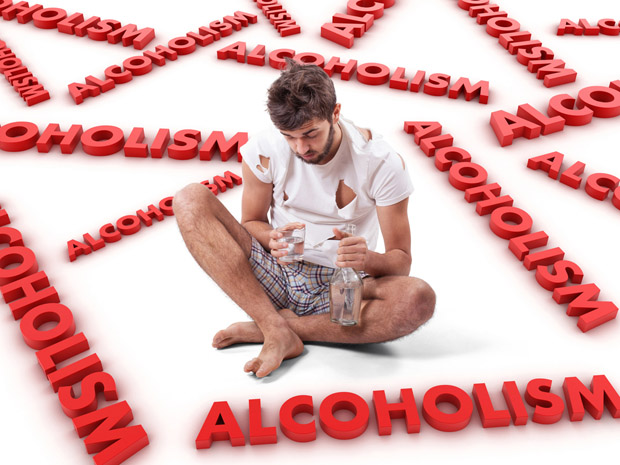In contemporary society, the insidious nature of alcohol and illicit drugs has manifested in multifarious forms of addiction, social disintegration, and crime. This malaise not only endangers individual health but also undermines the fabric of communities. The Bahá’í teachings present a comprehensive framework for understanding and addressing these issues, emphasizing a spiritual and moral awakening as the cornerstone of societal advancement. By examining these principles, one can glean profound insights into the promise of a transformative shift in perspective.
At the heart of Bahá’í doctrine is the recognition of the unity of all humankind and the indivisible interconnection between personal well-being and collective advancement. The manifestation of this interconnectedness is particularly evident in the context of substance abuse. Alcohol and drugs often serve as escapes from reality, leading individuals further into despair and erosion of their spiritual essence. In contrast, Bahá’í teachings advocate for a life imbued with purpose, wherein individuals seek fulfillment through constructive avenues rather than escapism.
Central to the Bahá’í perspective is the understanding that the material world is transient, while the spiritual realm offers enduring significance. This duality emphasizes the necessity of spiritual development as a buffer against the temptations of drugs and alcohol. Bahá’ís are encouraged to cultivate virtues such as justice, temperance, and self-control, which stand in stark opposition to the chaos wrought by addiction. For instance, developing the virtue of self-control not only aids in resisting the lure of alcohol but also equips individuals to confront the challenges of life with resilience.
The teachings articulate that illicit substances compromise one’s spiritual perception, acting as substantial barriers to the realization of one’s inherent potential. Thus, engaging with these detrimental practices renders individuals susceptible to moral degradation and criminality. The Bahá’í approach does not demonize the individuals ensnared in substance abuse but rather seeks compassionate solutions rooted in love and understanding. This outlook paves the way for rehabilitation efforts that focus on uplifting the individual spiritually, rather than merely penalizing or ostracizing them socially.
Furthermore, Bahá’í teachings underscore the role of education as an antidote to ignorance—the primary catalyst for many social ills, including substance abuse and crime. Educational initiatives are seen as fundamental not only for individual empowerment but also for the cultivation of a morally sound community. Knowledge serves as a transformative power, and through education, individuals can gain the requisite understanding of the physiological, psychological, and social repercussions of drug and alcohol abuse. This enlightenment can ignite a collective resistance against the societal normalization of substance use.
The Bahá’í community actively engages in promoting healthy lifestyles and abstaining from substances that hinder personal and collective progress. Through community-building efforts rooted in spiritual principles, the Bahá’í teachings advocate for supportive environments where individuals can flourish. Such environments facilitate the exchange of ideas and the sharing of experiences that deal with the dangers of illicit substances, thereby fostering a culture of accountability and support.
Moreover, this spiritual solution extends to the broader societal perspective, recognizing that the prevalence of crime often intersects with addiction. Socio-economic factors, disenfranchisement, and gaps in moral education frequently contribute to criminal behavior. Bahá’í teachings maintain that only through the application of justice combined with compassion can society truly ameliorate these issues. The emphasis on justice ensures that wrongdoings are addressed, yet in a manner that promotes healing rather than retribution.
The aspirational qualities inherent in Bahá’í principles also serve as a counter-narrative to the allure of drugs and alcohol. Individuals are taught to aspire toward higher virtues and noble pursuits, with an emphasis on seeking out and contributing to the common good. The capacity to turn away from substances and engage in productive activities—be it through arts, community service, or spiritual study—can significantly shift one’s life trajectory. The Bahá’í community provides various avenues for individuals to channel their energies into socially constructive endeavors, thus redirecting potential paths toward crime and addiction into avenues of creativity and service.
Engaging with the teachings of Bahá’u’lláh offers a profound paradigm shift. The promise of sobriety is an awakening to one’s true self—a self marked by spiritual integrity and purpose. Rather than viewing the struggle against substance abuse as a burdensome burden, it is recast as an opportunity for growth and development. This reframing piques curiosity about the possibility for enlightenment and invites individuals to discover the deeply enriching rewards that stem from a sober life grounded in spiritual principles.
In conclusion, the Bahá’í teachings elucidate a holistic approach to the challenges posed by drugs, alcohol, and crime. By prioritizing spiritual education, fostering compassion, and promoting social change, a vibrant community emerges—one that nurtures individuals toward meaningful existence rather than facilitating descent into addiction and crime. It is through this paradigm shift, informed by the wisdom of spirituality, that individuals can find not just liberation from substances, but also a profound connection with their essence and with each other. Thus, the promise of Bahá’í teachings lies not merely in avoidance of vice, but in an ardent pursuit of virtue that defines the very spirit of humanity itself.
